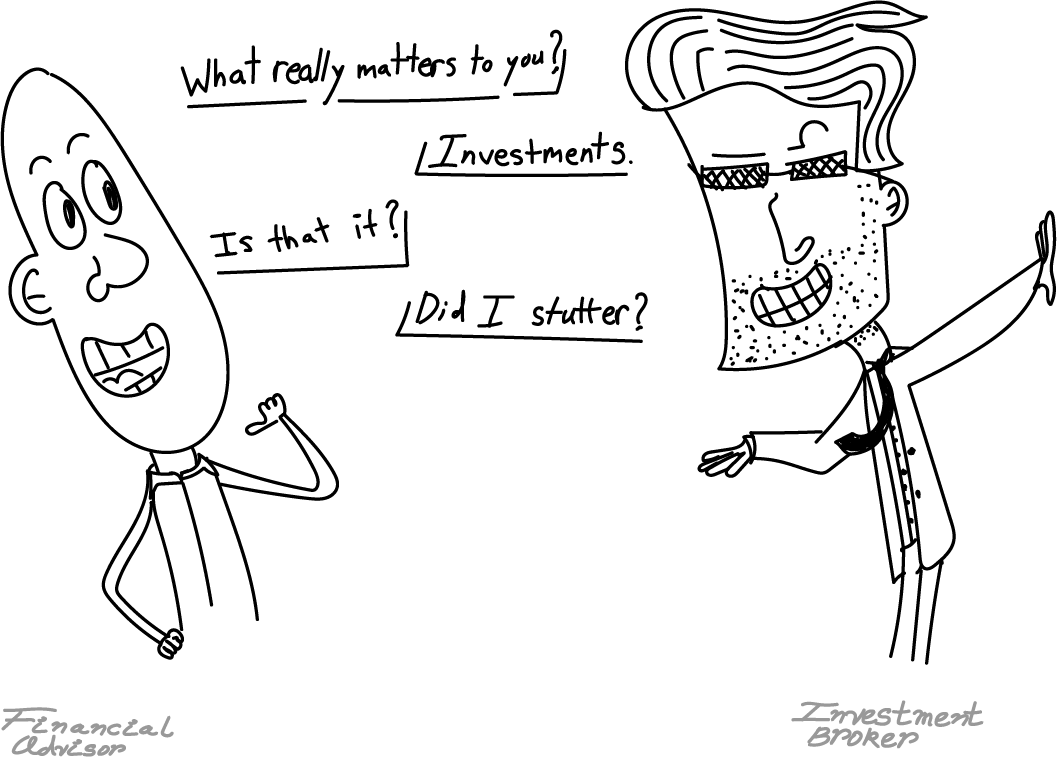The Financial Planner vs. The Investment Advisor

What percentage of your time do you spend focusing on the most important, productive, or optimal “thing”? 90%? 50%? 1%?
I would guess that most Americans are spending less than 10% of their time on the things that actually matter in the long run. By “matter,” I mean the thing that will give us the most enduring satisfaction.
In regards to your money, I think we are all tempted to focus too much on investments instead of the more powerful parts of our financial lives.
I’ve intentionally spent the bulk of my blog writing about investing. Investment concerns and questions are still the primary reason people reach out to me. It makes sense, because investing can be complex and if you make a bad investing decision, the mistake can cost thousands of dollars.
We want to believe that there is a special knowledge to investing. Smart people should be able to outsmart the investing markets right? History shows us many have done it before. But never forget it takes a combination of intellect and dumb luck to hit it rich in markets. And I don’t know anyone selling dumb luck right now.
This is why I wouldn’t work with a financial advisor who primarily focuses on investments. Think back to the last time you talked with an advisor. What percentage of the time did you spend talking about investments or looking at statements/values? It’s a red flag if it was more than 25% of the time.
So what should an advisor be doing if not focusing and guiding families on investments? They should start practicing real financial planning.
Real financial planning is delivered by a professional, typically marked by a professional designation, such as CFP®️. Real financial planning is crystal clear on the conflicts of interest they have in giving advice (which are always present). Real financial planning is independent and only compensated by clients alone, not by product vendors.
You’ll know you’re receiving real financial planning when you are asked really great questions, and then listened to more than being talked at. You won’t get lost in financial jargon you can’t understand, but will instead appreciate complex matters made simple.
If you’re purely looking for investment advice, read Benjamin Graham and Warren Buffett. Even those investment stalwarts shun practices like picking hot stocks, timing the market, or predicting interest rates. But if you’re looking for progress towards your financial goals and well-being, then find a real financial advisor you can learn to trust.
He or she will help you clarify your goals, keep reminding you of those goals, and then stand between you and all the craziness of this world that could knock you off track.